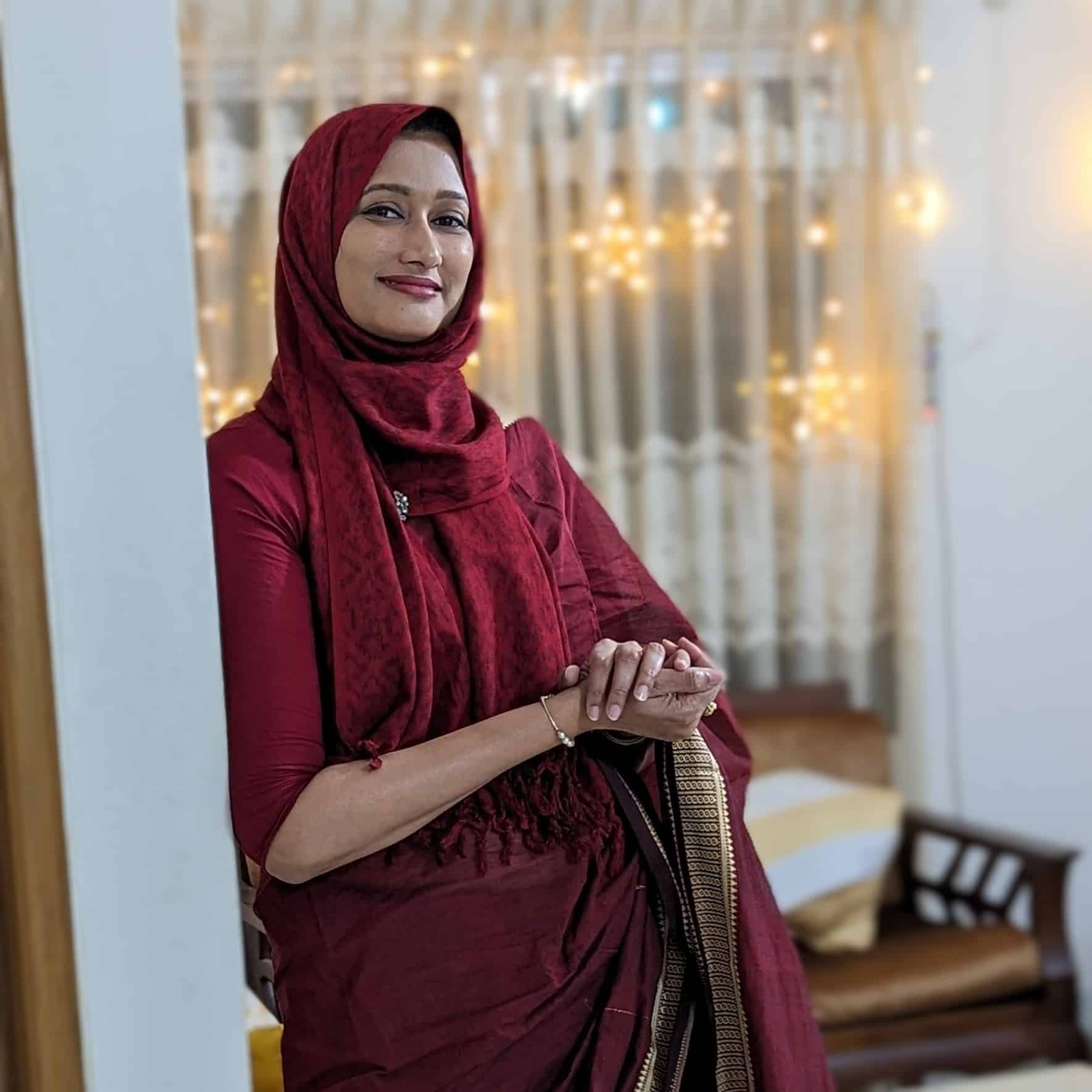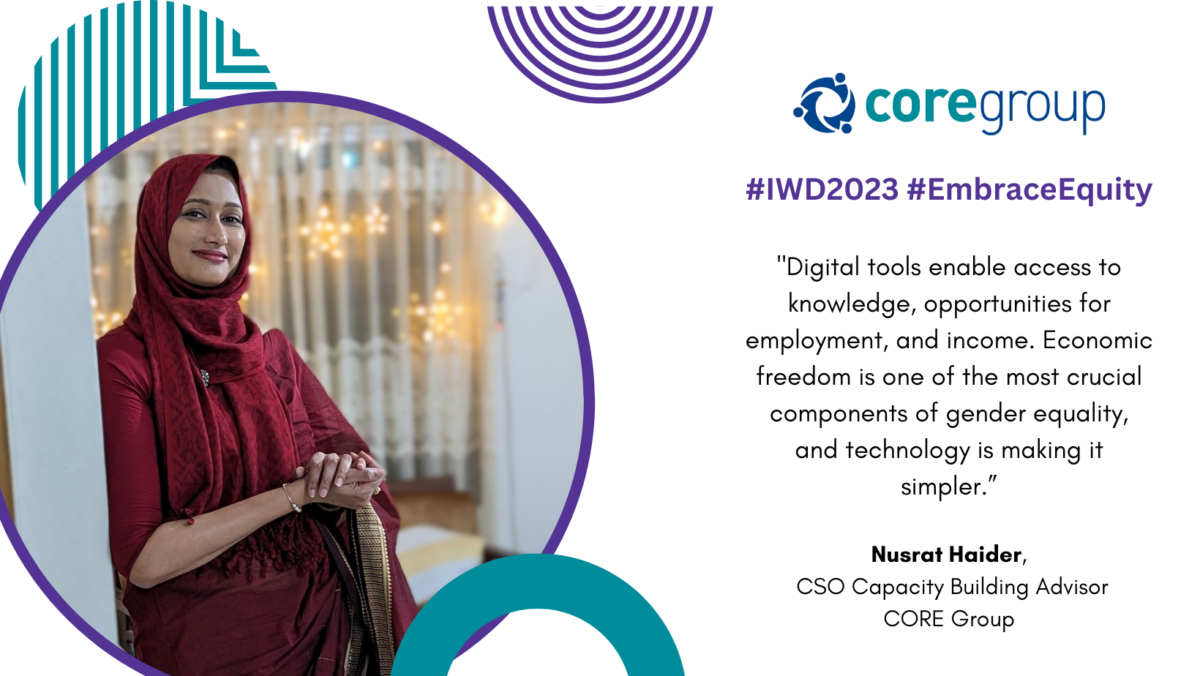“Using digital tools and having an internet connection can expand one’s knowledge, opportunities for employment, and income. Economic freedom is one of the most crucial components of gender equality, and technology is making it simpler.”
Nusrat Haider, CSO Capacity Building Advisor for CORE Group’s Small Grants for Scaled Impact Project.
How does your work empower women and girls in low- and middle-income countries around the world?
I am part of a participatory small grants program to advance sexual, reproductive, maternal, newborn, child, and adolescent health (SRMNCAH) programming, policy, and interventions in Bangladesh, Cambodia, and Nepal. The program is providing financial, technical, and organizational resources to local civil society organizations (CSOs) led by women, youth, and people with disabilities. Our approach with this program will strengthen local and national organizations’ technical and organizational capacity to design and implement community-based solutions to SRMNCAH challenges, focusing on gender transformation, quality of care, and health equity.
Previously, I have worked with marginalized groups, specifically the internally displaced community in Bangladesh’s coastal and island regions; this community is deprived of fundamental rights due to their migration. The women in this society are disadvantaged and in comparison to other groups, the rate of child marriage is significant. As a result of child marriage, there are high rates of violence against women, divorce, and restricted access to healthcare and sexual and reproductive health services.
I have engaged with many awareness campaigns and projects to increase access to basic services by supporting internally displaced communities. Through my work, I have observed some changes in the community in the last few years. I’ve witnessed many adolescent girls gain confidence and fight for their rights. It is encouraging to see rejecting child marriage, voicing their opinions and engaging in conversations about sexual and reproductive health in the family. I believe I contributed in some way to these changes through my work.

How can technology support the advancement of gender equality worldwide?
Technology use has a significant potential to enhance gender equality and empower women. Using digital tools and having an internet connection can expand one’s knowledge, opportunities for employment, and income. On various social media platforms, like Facebook, Instagram, etc., a revolution taking place where women and girls are sharing knowledge and reaching many consumers for their products, such as homemade crafts, apparel, and food. The emergence of home-based/virtual careers offers women varied levels of financial flexibility. Economic freedom is one of the most crucial components of gender equality, and technology is making it simpler.
Women and girls are using YouTube to showcase their creativity and educate others on issues such as sexual and reproductive health. Ellevate, Feministe, and other woman-friendly websites and apps are helping women access information and resources, encourage discussions, and promote gender equality through online activism.
What’s your favorite app or website, and how does it bridge the gender divide?
I don’t have any specific app or website; however, I look at different websites that promote gender equality. I visit the UN Women blog and website for staying up to date on various gender equality issues. I also look at Feminist and other blogs and magazines that promote women’s rights and gender equality.

